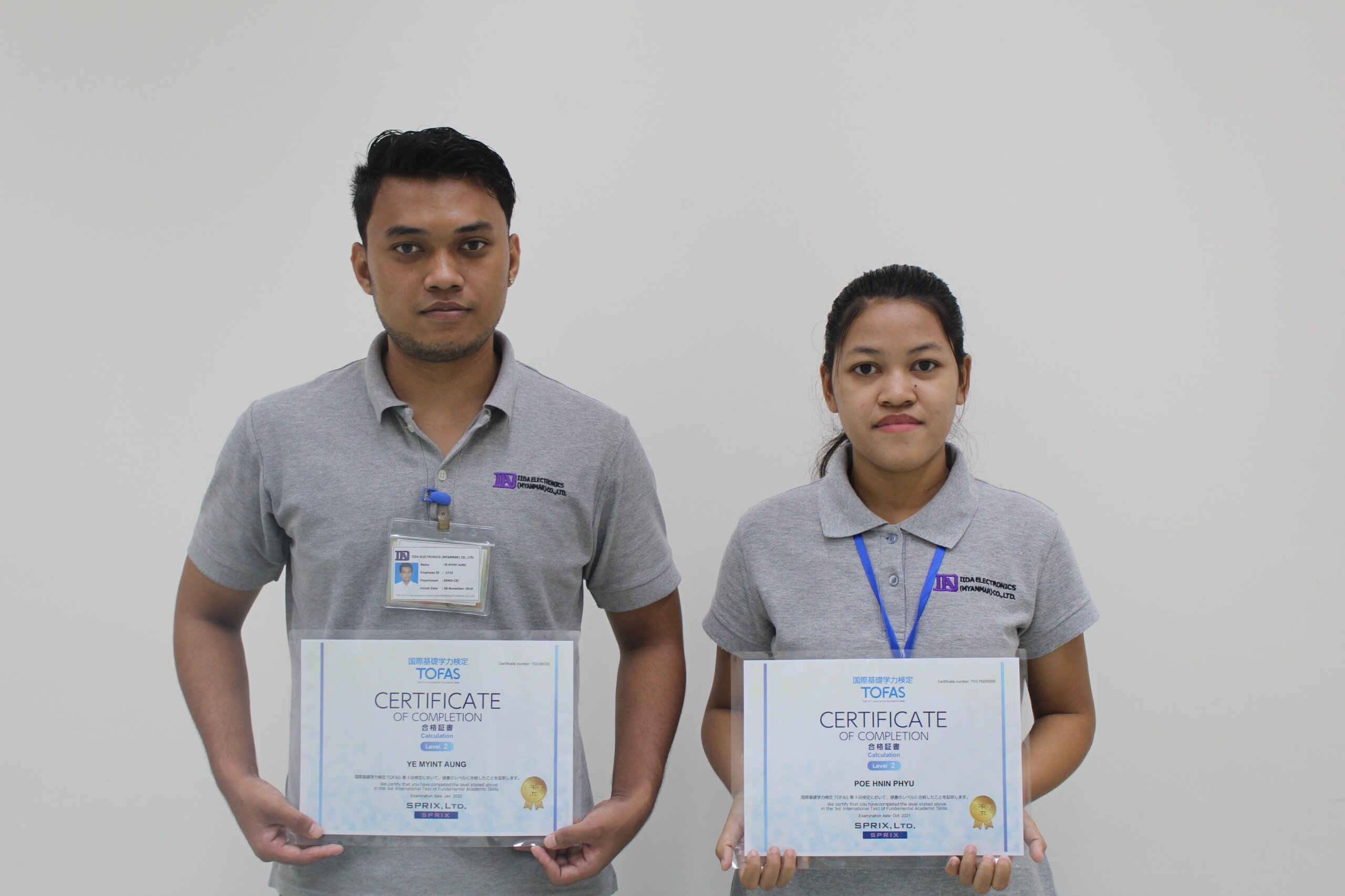Creating opportunities for out-sourced workers.

In Myanmar, TOFAS was administered to employees of three local factories operated by Japanese companies. Normally administered to children, this was the first time the test was taken by adults in the workplace. Each factory showed different results, revealing new possibilities for TOFAS.
The first company wanted to assess the calculation skills of employees. TOFAS revealed that half of those achieving excellent results were not expected to do well. As a result, some with excellent scores were assigned more challenging tasks or to positions that suited their abilities. TOFAS enabled the company to better utilize the talent of their employees.
At the second company – even though TOFAS results would not affect employee evaluations – each team voluntarily held study sessions to prepare for the test. As a result, the percentage of correct answers was quite high. Moreover, the employees were united in their efforts to learn, and their strength as a team appears to have increased.
The third company implemented TOFAS because they believe they have a responsibility to provide educational services to their employees, whose communities often lack educational opportunities. SPRIX, who shares this belief, is considering ways of providing learning support beyond TOFAS.
It is now clear there are various ways in which TOFAS can provide benefits in factory settings – thus contributing not only to the lives of children, but also to those of adults.